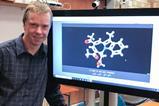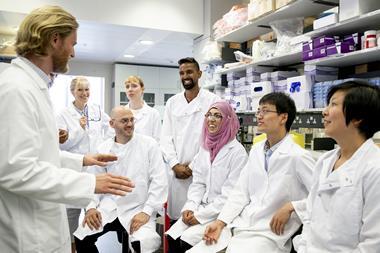A study of academic mentoring involving thousands of biomedical scientists suggests that researchers are more likely to have a successful academic career if the mentors they work with have different areas of expertise.
Previous work has shown the positive effects of mentoring, with mentors who are successful themselves tending to train more successful mentees. But data scientist Jean Liénard at Oregon Health & Science University in the US, and colleagues, wanted to explore in more detail the way PhD students and postdocs are influenced by the academics they train under.
The team looked at more than 18,000 ‘trios’ of biomedical researchers drawn from the Academic Family Tree open database. Each trio consisted of a mentee, their graduate mentor and their postdoctoral mentor. They used the number of researchers trained as a measure of academic success, as well as metrics such as the number of publications that could be drawn from open databases. They also analysed the abstracts of papers published by researchers so they could compare the similarity of research topics among mentors and mentees.
Their results indicate that postdoctoral mentors are more instrumental to researchers’ success than graduate ones, and that researchers are likely to be more successful overall if their two mentors – graduate and postdoctoral – have expertise in different areas. They suggest this may support the idea that researchers who are able to integrate different ideas from dissimilar mentors are more likely to develop independent research careers and find success in academia.
They note that the trends they identified have persisted for at least 40 years, despite changes to the overall numbers of PhD students, postdocs and research positions over time.
References
J F et al, Nat. Commun., 2018, 9, 4840 (DOI: 10.1038/s41467-018-07034-y)

















No comments yet